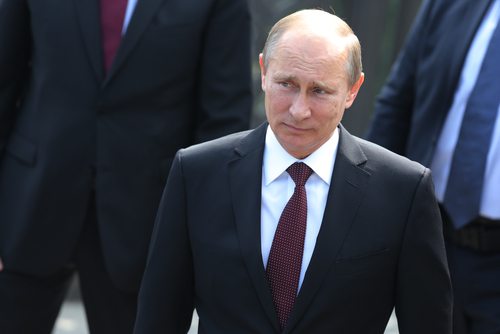Key Takeaways:
- Over a dozen senators urge President Trump to halt plans for nuclear testing.
- Lawmakers call resuming nuclear testing “geopolitically dangerous” and costly.
- Russian President Putin has asked officials to draft proposals for matching tests.
- New bills aim to ban nuclear testing and protect global agreements.
- Experts warn that restarting nuclear testing risks a fresh arms race.
Earlier this week, 14 Democratic senators wrote to President Trump. They urged him to stop any plan for nuclear testing. Led by Sens. Jacky Rosen and Martin Heinrich, the group warned that testing would harm U.S. security. They asked the president for clear answers on whether he really intends to resume tests.
Why Senators Oppose Nuclear Testing
The senators stressed that the United States does not need new nuclear tests. They said testing would be “fiscally irresponsible” and unnecessary. Moreover, they argued it would break long-standing global norms. Those norms have helped keep the world safer for decades. In fact, no major power has conducted such a test since 1992.
Sen. Ed Markey introduced emergency legislation to block testing. At the same time, Rep. Dina Titus proposed a bill to ban new tests. Titus called the president’s idea “reckless” and warned it threatens people’s health. She noted tests would send dangerous radiation into nearby communities.
Russia Weighs New Nuclear Testing
In response to talk of U.S. tests, Russian President Vladimir Putin ordered his officials to draft plans for possible testing. He told his Defense Ministry, Foreign Ministry, intelligence services, and civilian agencies to explore options. Russia has not tested a nuclear weapon since the final Soviet trial in 1990.
Putin’s move may be mostly political, experts say. However, if both superpowers resume nuclear testing, other nations could follow. That would break the global freeze on nuclear testing. Such a shift could fuel a new arms race and undermine years of diplomatic progress.
What Could Happen Next
If Trump and Putin both restart nuclear testing, the world would enter uncharted territory. Several consequences could unfold:
- Erosion of Treaties: Key agreements like the Comprehensive Test Ban Treaty would face collapse. These treaties rely on all parties refusing to test.
- Global Arms Race: China, France, the U.K., India, Pakistan, and others could restart tests. Each nation might race to build bigger, more powerful weapons.
- Public Health Risks: Underground tests can still release radiation. Nearby communities would face threats to health and the environment.
- Economic Costs: Building test facilities and developing new warheads could cost billions. Taxpayers would bear the burden.
Possible Impact on Global Security
Experts say there is no scientific need to resume nuclear testing. Modern technology lets the U.S. check its arsenal without explosions. In fact, the Energy Department has tools to ensure weapon safety and reliability.
Resuming nuclear testing would be largely political. It would signal that America views testing as a show of strength. Yet, this show could backfire. Other countries would feel justified to restart their own tests. Then, the fragile balance of nuclear deterrence would crumble.
Moreover, breaking the testing moratorium would weaken diplomatic efforts. Nations trying to curb nuclear proliferation could lose trust in U.S. leadership. As a result, talks on reducing warheads might stall indefinitely.
Keeping the Testing Ban Strong
Many experts urge the U.S. to ratify the Comprehensive Test Ban Treaty. That treaty includes on-site inspections to confirm no tests happen. If the U.S. and Russia both ratify, it would lock in global testing bans. Then, violators like North Korea would stand out as clear rule-breakers.
Lawmakers and scientists also call for stronger monitoring systems. They want better sensors worldwide to detect secret tests. This way, if a nation tries a covert test, the world would know fast and respond swiftly.
Conclusion
As more senators push back against nuclear testing, the debate heats up. Their letters and proposed bills aim to keep the U.S. from breaking the testing freeze. Meanwhile, Putin’s order shows how one step can spark a tit-for-tat cycle. Ending nuclear testing has helped keep the world safer for over three decades. If leaders can agree to maintain that freeze, they may avoid a costly and dangerous arms race.
Frequently Asked Questions
What is nuclear testing?
Nuclear testing means detonating an atomic or hydrogen bomb. Tests check a weapon’s power and reliability.
Why do some leaders want to stop nuclear testing?
They worry tests threaten global security, break treaties, and risk public health. Tests also cost huge sums of money.
Has the United States done nuclear testing recently?
No. The last U.S. nuclear test occurred in 1992. Since then, the U.S. has relied on computer models and non-explosive checks.
What happens if nuclear testing resumes?
Resuming tests could spark a new arms race, weaken treaties, and increase health risks near test sites. It could also damage U.S. leadership in nonproliferation.
